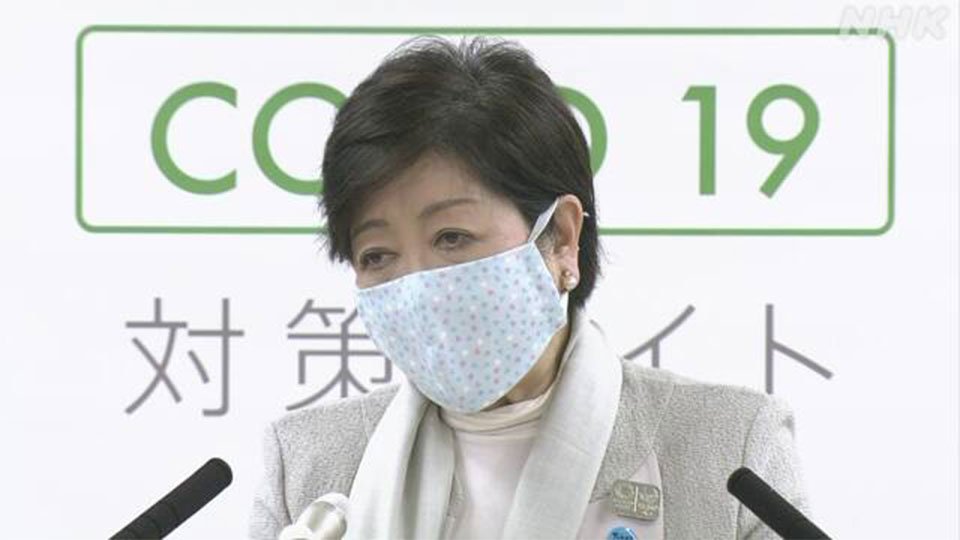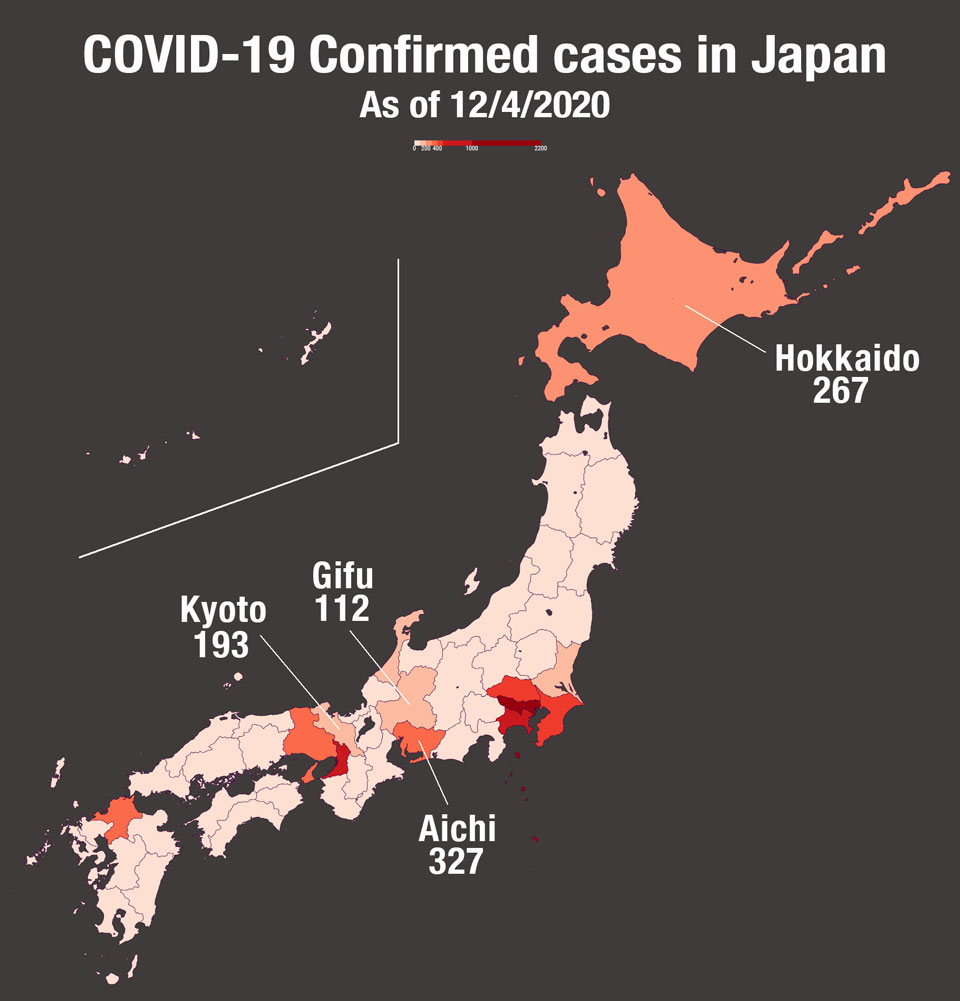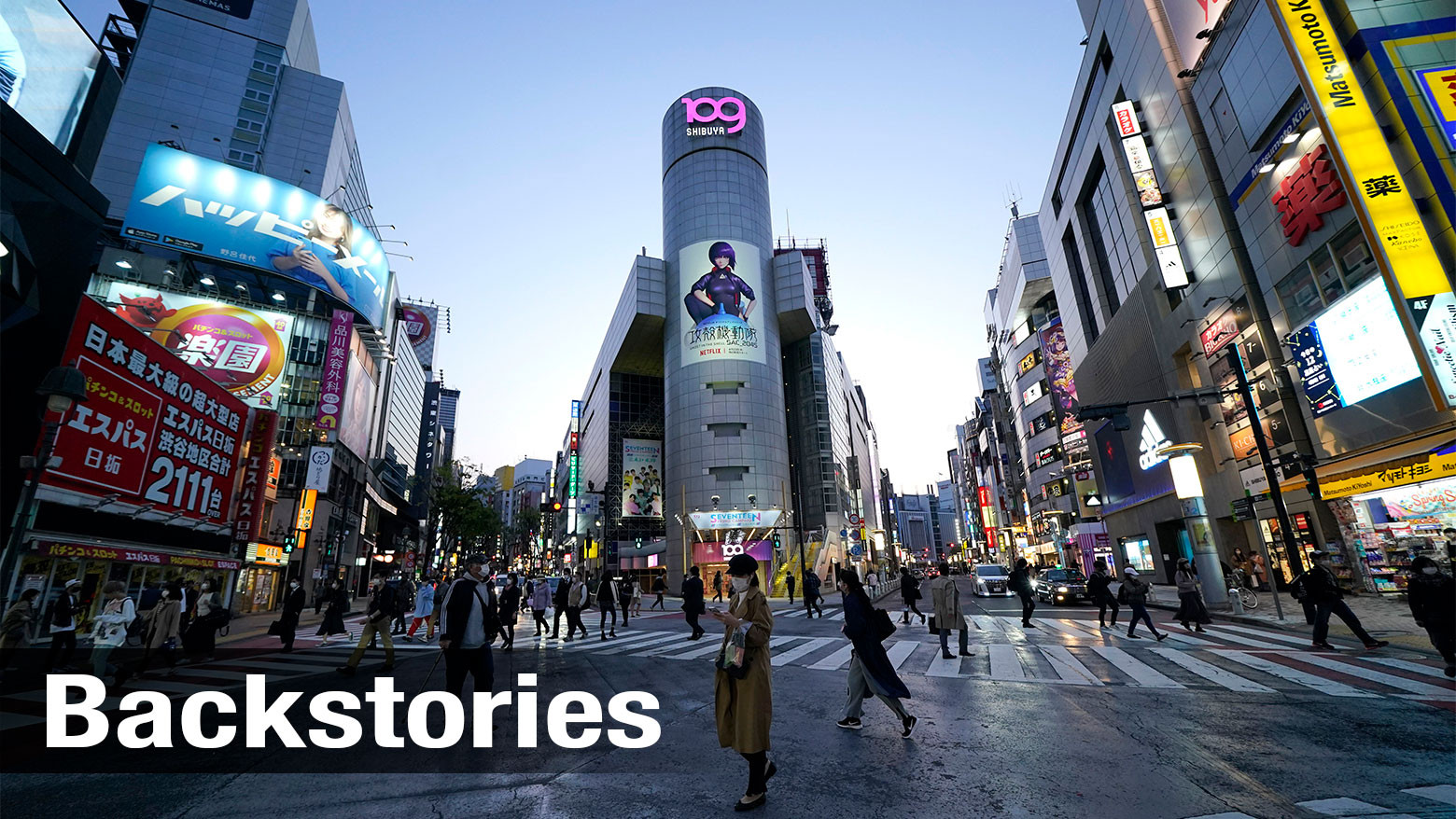Closure requests from the Tokyo Metropolitan Government to six business categories went into effect on Saturday. Amusement facilities, universities and cram schools, sports and recreation facilities, and event and exhibition venues were among those affected.
The government has also asked restaurants, including Japanese-style izakaya pubs, to operate only between 5 a.m. and 8 p.m., and to stop serving alcohol at 7 p.m.
Governor Koike Yuriko has said the government will provide subsidies to small- and mid-sized firms that fully comply with the requests.
She added that hospital visits and outings to buy essential items, such as groceries, will not be restricted.

Internet cafes are one of the businesses subject to the government request. Many such establishments in Tokyo cater to long-term customers with no fixed address who sleep in the booths. The government has begun offering these people temporary accommodation at business hotels and other facilities.
A 44-year-old man who has been moving between internet cafes for two months was given a room at a business hotel through Monday. He says he’s relieved to have a place to stay but that he is desperate to find a more permanent solution as soon as possible.
A supermarket in Nerima Ward says it is seeing an increasing number of families shopping together. The store president says people who are cooped up at home all day see grocery shopping as their one opportunity to get fresh air. He says the store received many families over the weekend.
But this has raised concerns that supermarkets could become a source of infection. The National Supermarket Association posted a tweet requesting people to shop in smaller numbers.
While the central government’s state of emergency is only in place for seven prefectures, other regions across the country are putting their own measures in place.
Omura Hideaki, governor of Aichi Prefecture, has declared a state of emergency. He says it was necessary, given the rising number of infections in the prefecture. He adds that he is urging people to voluntarily take their own measures to stop the spread of infection.
Kyoto Prefecture is another region that has seen a rise in infections, and it asked to be included in the central government’s state of emergency declaration last week.

A World Health Organization official said on Friday that Japan may need to implement stronger measures to contain the coronavirus in areas with untraceable routes of infection.
Michael Ryan, Executive Director of the WHO's Health Emergencies Programme, said three hot spots, including Tokyo, have in recent weeks seen cases that are not linked to known chains of transmission.
He says the country may have to scale up testing, isolation, and other measures to push down infections.

